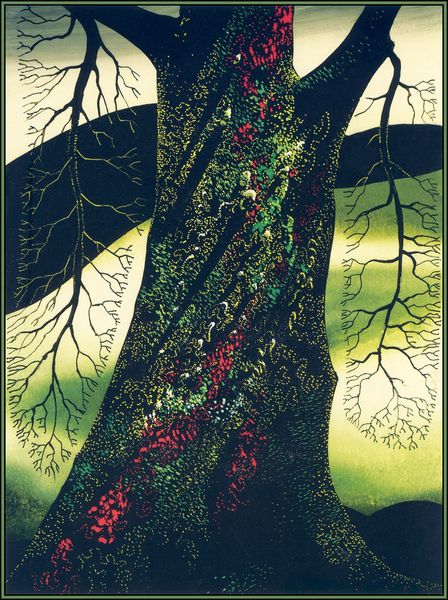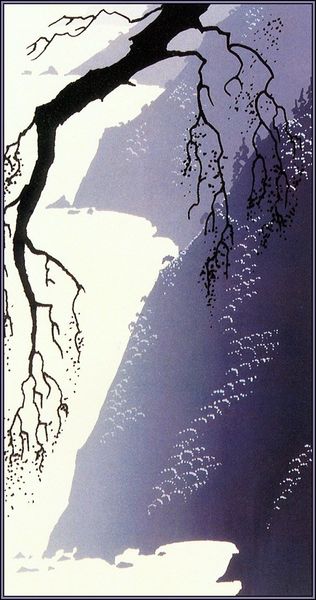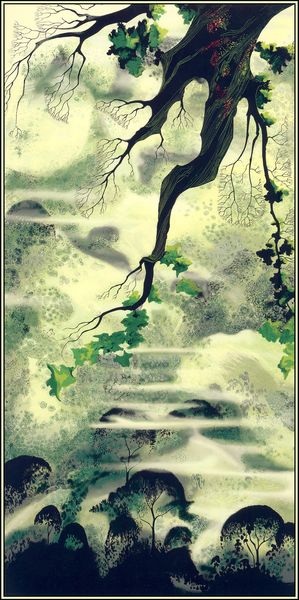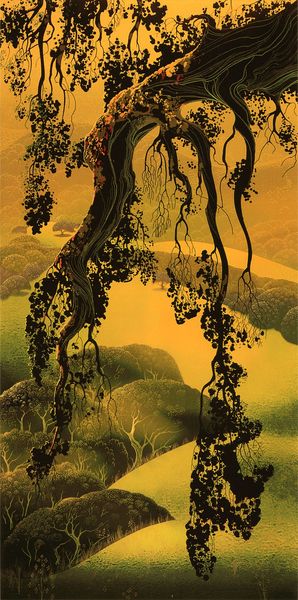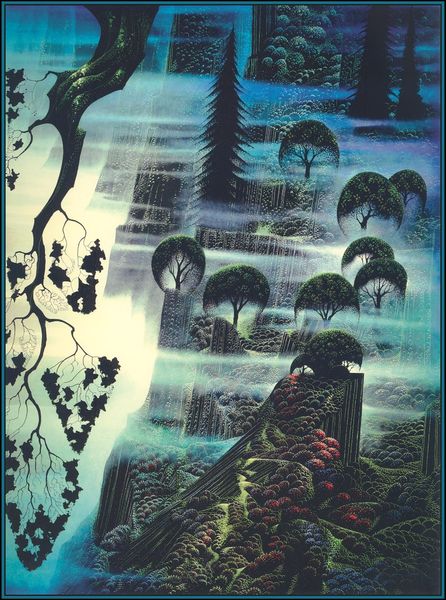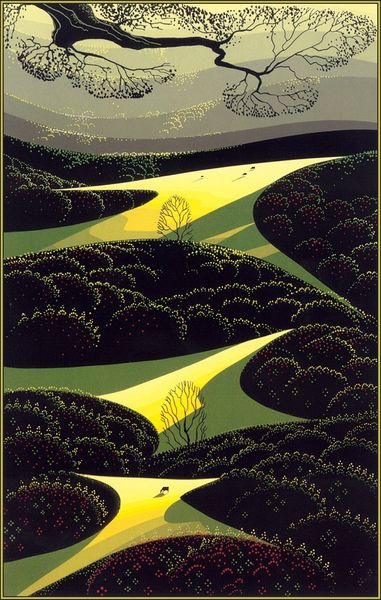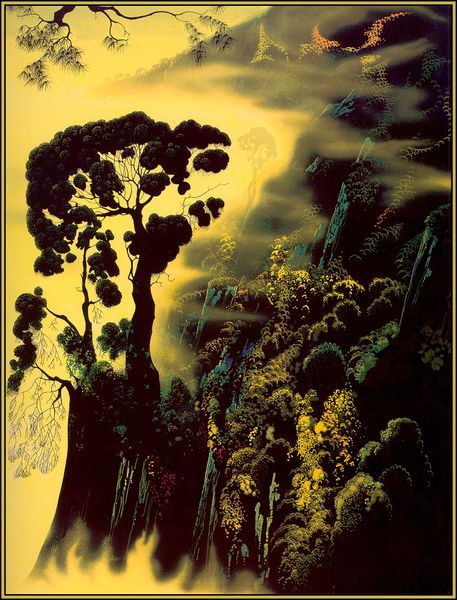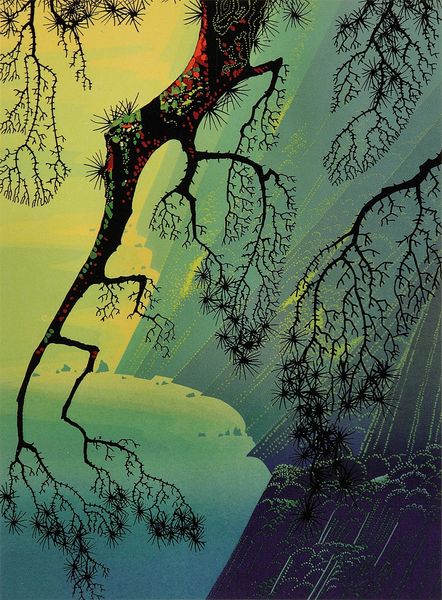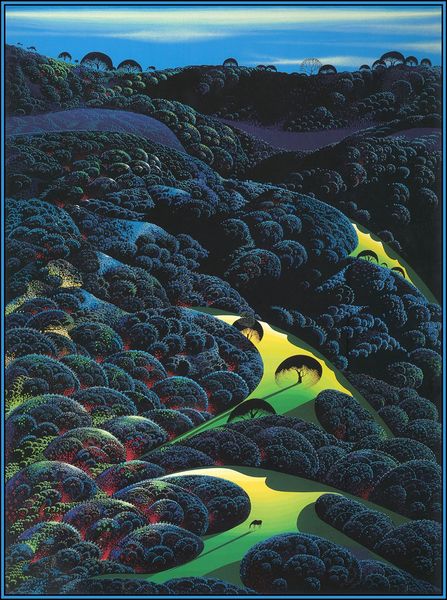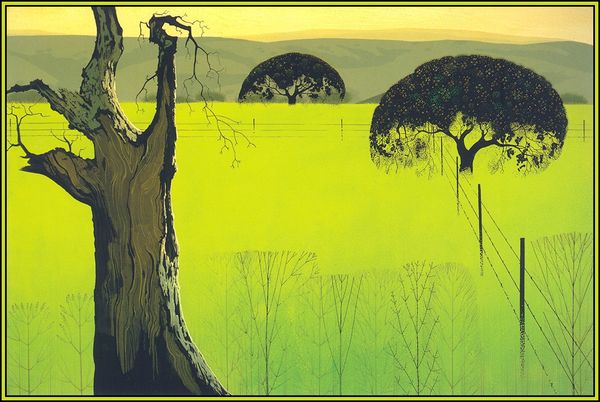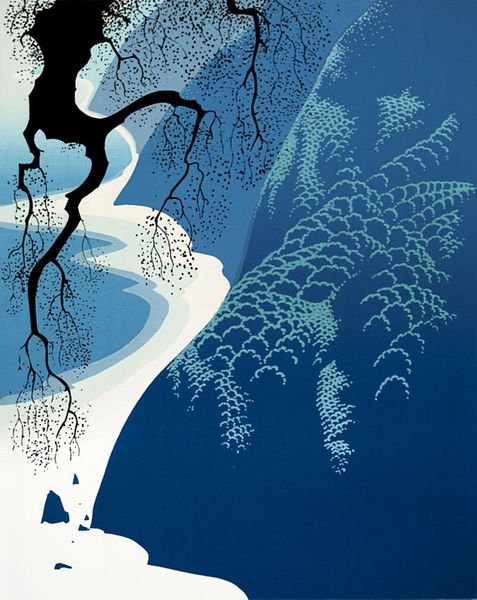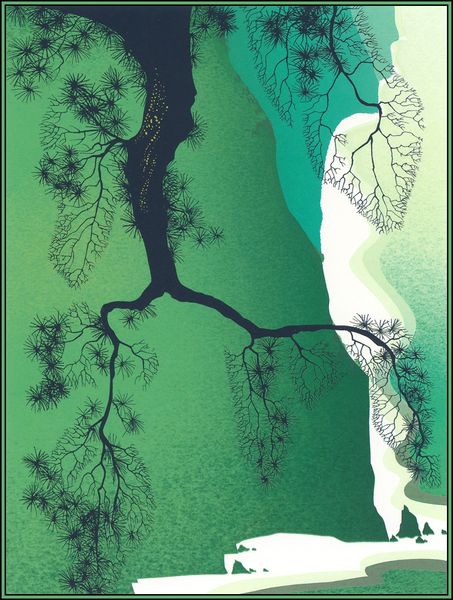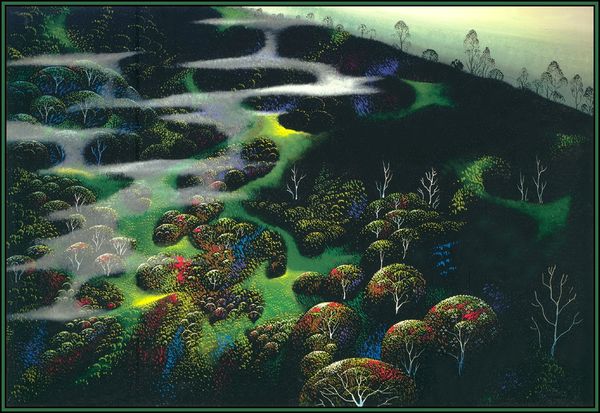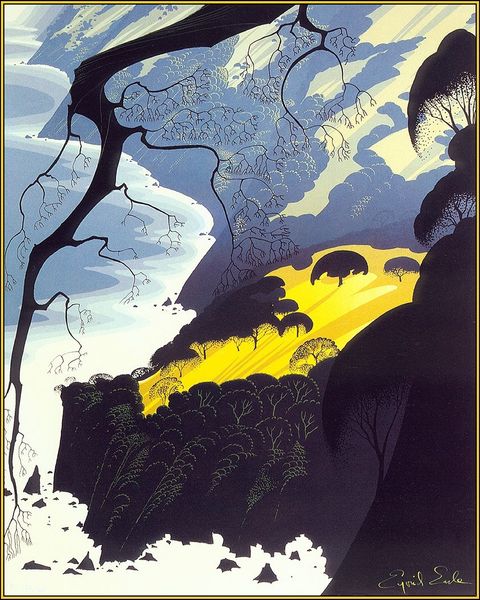
painting, acrylic-paint
#
organic
#
painting
#
landscape
#
acrylic-paint
#
fractal art
#
geometric
#
line
#
modernism
Copyright: Eyvind Earle,Fair Use
Editor: So, this is "Green Mist," an acrylic on board painting by Eyvind Earle from 1999. I find the stylized, almost geometric rendering of nature here really striking, it almost seems digitally rendered. What grabs your attention? Curator: It's intriguing how Earle uses acrylic, a decidedly modern, almost industrial material, to depict a seemingly timeless natural scene. Does that strike you as paradoxical? Acrylic allowed for quicker drying times, impacting the artist's labor. And consider the boards—likely manufactured—a further step removed from a direct interaction with raw nature. Editor: Definitely. It makes me think about our current relationship with nature, how mediated it is through technology and mass production. What about the style? Is this a typical landscape, in your view? Curator: Not quite. The extremely clean lines and repetitive patterns, created by modern tools and methods, bring to mind mass-produced imagery rather than a purely 'organic' landscape. It hints at the human labor required to both 'manufacture' an artistic vision and how our very idea of nature becomes filtered through the lens of the industrial processes. Are we seeing a reflection of our own manufactured reality here, even in something as "natural" as a landscape? Editor: That's a really interesting perspective. The medium and manufacturing really do shift how we perceive it. Do you think he was commenting on consumerism or something? Curator: It's possible. Consider the date, 1999 – a moment of peak consumer confidence and technological advancement. Earle may be subtly suggesting how our experience of nature is increasingly commodified, a stylized product rather than a primal encounter. Editor: Wow, I never considered how the material itself could inform the meaning so profoundly. Curator: Material choices are never neutral. Considering their origin and purpose opens new avenues for understanding. Editor: I will definitely think about that moving forward. Thanks!
Comments
No comments
Be the first to comment and join the conversation on the ultimate creative platform.
